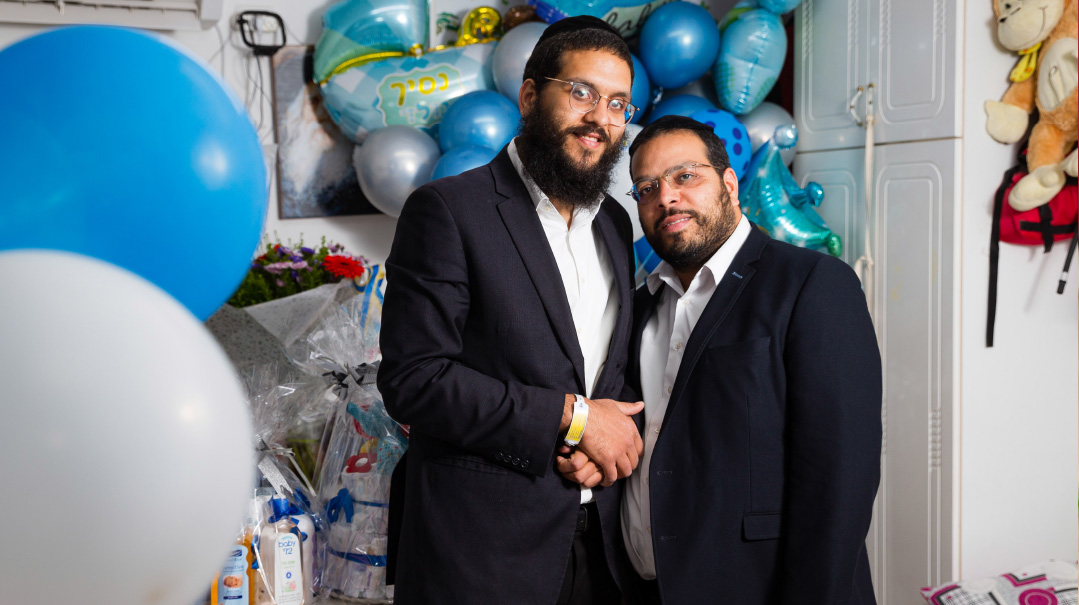My Brother’s Keeper
| April 27, 2021Two childless brothers share their story of pain, hope and salvation

When Reb Yitzchak (Itzik) Churi heard the first cry of the newborn as his wife Efrat gave birth in the delivery suite of Hadassah Ein Kerem Hospital last month, it was, he says, “a ‘boom’ I can’t describe. When they handed my wife the tiny, living, breathing baby girl, she held her close and in a tear-choked voice whispered, ‘I’ve been waiting for you for 21 years.’ The staff was all crying along with us. We saw the miracle unfold before our eyes.”
For more than two decades, the Churis embarked on the bumpy road of medical treatments, followed recommendations by concerned friends and relatives, offered up heartrending tefillos and entreaties, and accessed segulos and brachos, all so that they could become parents. But the yeshuah did not come — until Shabbos parshas Vayikra a few weeks back, the day they finally became a family.
And it wasn’t the only joyous news in the Churi mishpachah. For twelve and a half years, Itzik’s brother Neriya and his wife were also waiting. Two brothers praying, beseeching, to build their families. Throughout the years, the brothers gave each other strength and encouragement, and now, the time has come for them to rejoice in each other’s simchahs.
During those years of waiting, the challenges often seemed insurmountable. Yet both families’ excruciating journey to parenthood came to a conclusion in a way that can only be defined as miraculous — Itzik with a baby girl, Neriya with his week-old bechor, and both on the heels of a tzaddik’s eitzah and brachah.
“My goal is to strengthen those who are still waiting,” Reb Itzik says as we sit around the table in his Beit Shemesh apartment, together with his younger brother Neriya who lives in Jerusalem’s Ramot neighborhood — where just last week, his neighbors surrounded his car and embraced him in song and dance as he returned home from the hospital after his wife too gave birth.
Oops! We could not locate your form.













